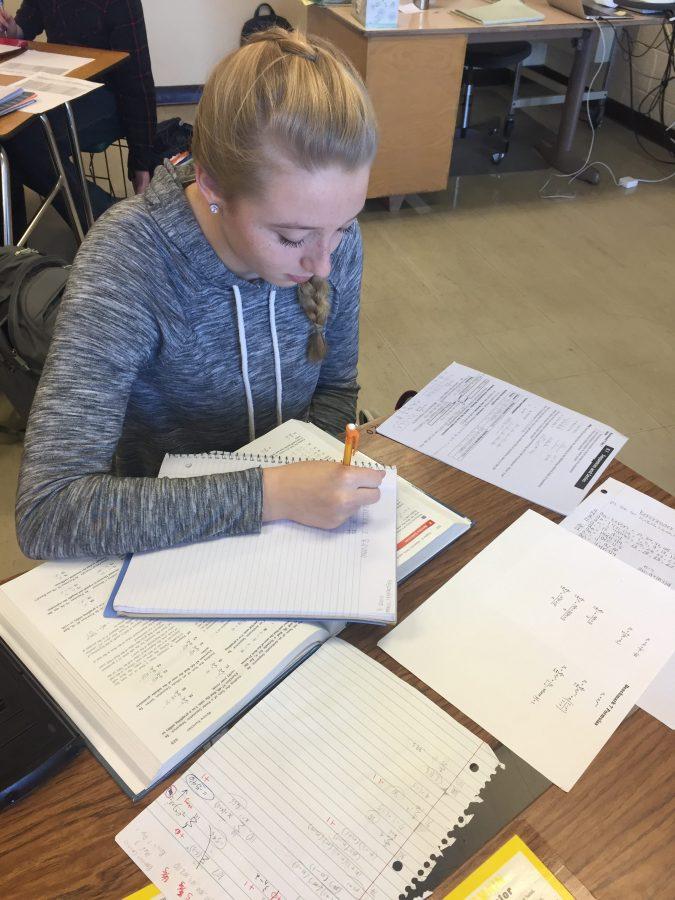Student Life Column: Drowning in Homework
Students are drowning in homework and gasping for a breath of air; the struggle of too much homework needs to be resolved.
As I sit in class and watch a sophomore girl write the word “test” over and over again in each subject of her agenda, I know right then she has hours of studying ahead of her and a backpack full of homework as well.
Students arrive at school by 7:50 a.m. and spend 7.5 hours at school, only to come home and pound out 3 hours of homework. This year, NYU interviewed 128 juniors and nearly half of them responded that they do 3 hours of homework on average. Students at NHS say they can relate to spending 3 hours on homework a night. Countless hours of homework every night increases stress for many high schoolers, especially those who are trying to balance extracurriculars with school work. According to the juniors surveyed in NYU article, 80 percent of the students feel some level of stress on a daily basis because of schoolwork. From this information, NHS should realize 80 percent is 1,600 out of our 2,000 students. If NHS needs one simple way to increase the wellbeing of students at NHS it would be to decrease homework.
Students at NHS say nearly every teacher who assigns homework checks it for completion rather than accuracy. If homework is supposed to be practice, how are teachers motivating students to practice when they do not even check for accuracy? In fact, NHS senior Cece Kraus says, “90 percent of my homework is busywork that gets graded for completion, not accuracy.” Students are starting to consider homework as busy work, rather than practice. Whereas Principal Wunderlich says, “If homework is assigned it should be relevant to the learning goal at the end.” It is no surprise to Wunderlich that students do 3 hours of homework a night.
As a senior, I have many experiences with different-style classes. One thing I can say is, teachers who do less inside the classroom with students assign more homework outside of class. Principal Wunderlich says, “I truthfully think that the best learning is done oftentimes in the classroom, so I’m not a huge proponent of a ton of homework.” Wunderlich, who is fully aware of the amount of homework students receive, believes it is time to find a happy medium. It is necessary with having 7 classes a day to find a balance.
NHS students are swamped with homework and stressed out, though are many ways to solve this homework crisis. One suggestion is for teachers and parents to help students choose classes appropriately. It is important to encourage students to take classes that have a balanced workload and to also steer students away from taking several AP classes. Another suggestion is for teachers to take advantage of the capability to see when other teachers have scheduled tests. This way teachers are not slamming students with hours of homework in one night.
Students need to remember that high school is important, but they also need to remember to take care of themselves. NHS faculty as well as a trusting adult can help struggling students find a balance. Learning how to manage work, free time and activities is a skill that will benefit students for a lifetime.
For more information from NYU. Read “NYU Study Examines Top High School Students’ Stress and Coping Mechanisms.“ www.nyu.edu/about/news-publications/news/2015/august/nyu-study-examines-top-high-school-students-stress-and-coping-mechanisms.html.






